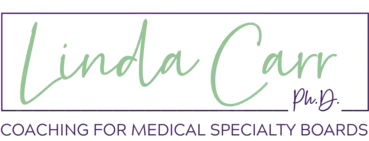
You can do several things before you begin to read a journal article or a textbook that can increase your reading comprehension. Using this strategic approach for reading may take a little longer, but it will be well worth your time. Here are ten suggestions to optimize your learning while you read:
1. Look at the objectives and/or the headings and ask yourself what you know about that content.
2. Reflect on your prior knowledge … what do you already know about these topics? What do you not know? Spend time here … don’t rush.
3. Look at the tables … what does each tell you? Read the captions. What questions do you have?
4. Look at the figures … what do they tell you?
5. Connect the information between the tables, figures, and diagrams. What do they tell you? Tie the tables, figures, and diagrams back to the text.
6. Go to the end of the article (or textbook) and answer the quiz questions (if there are any). Cover the answers, guess what the distractors might be. Identify your learning issues.
7. Ask yourself what’s missing – what is NOT in the material? Then, read the article (or book).
8. Close the article (or book).
9. Make a mind-map (or concept map) of all you remember. DO NOT REFER TO THE ARTICLE. Keep forcing yourself to use alternative memory techniques (visualization, photos, graphs, personal associations).
10. Check through the material and fill in important information that you missed (use a different color of ink). Then, do another mind-map, from memory.
You can improve your reading comprehension by experimenting with these ten suggestions. If you practice reading in this step-by-step manner and make it a habit, your learning will be more meaningful and remembered longer. This method can definitely help make the content “stick”, and that’s the result we need.
________
Linda L. Carr, Ph.D., Founder/Principal at Coaching for Medical Specialty Boards, is a medical educator and learning specialist who coaches physicians preparing for specialty boards through virtual, one-on-one coaching. Visit www.DrLindaCarr.org to learn more about her program and download her FREE Study Guide.
